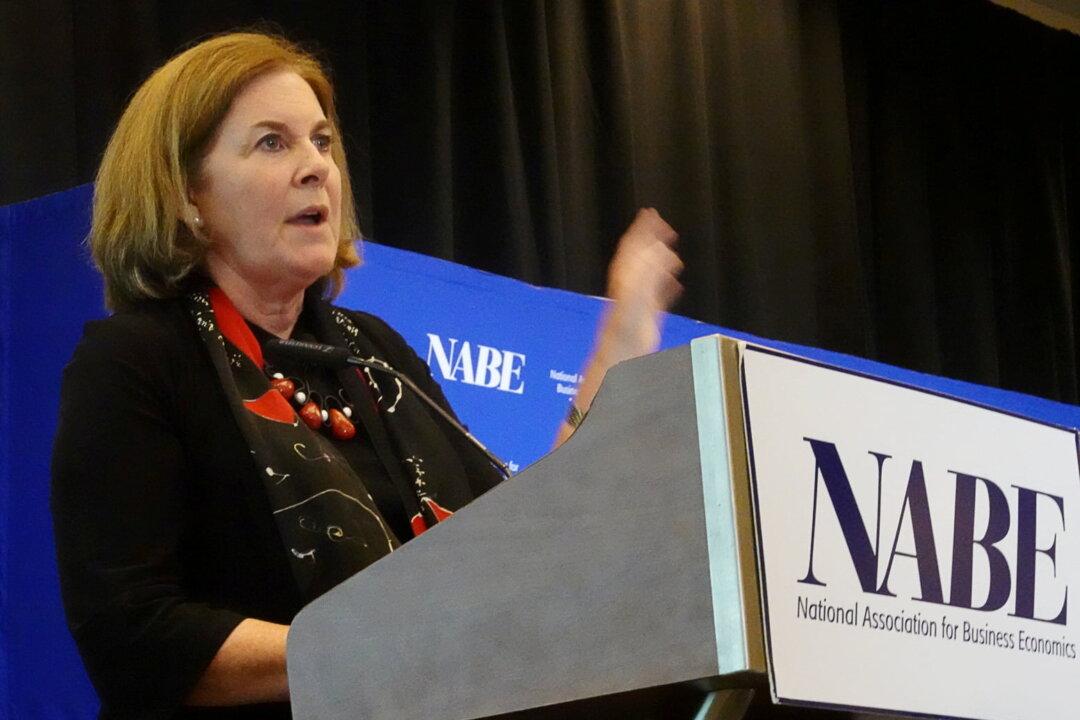Despite calls for a tighter monetary policy to fight high inflation, Federal Reserve policymakers have yet to commit to the size of the next rate increase at its policy meeting in September, said Esther George, president of the Federal Reserve Bank of Kansas City.
It also remains far from clear whether the easing of U.S. inflation rates in July is the start of a downward trend, according to George during an interview with CNBC on Aug. 25, at the start of the Fed’s summer conference in Jackson Hole, Wyoming.





